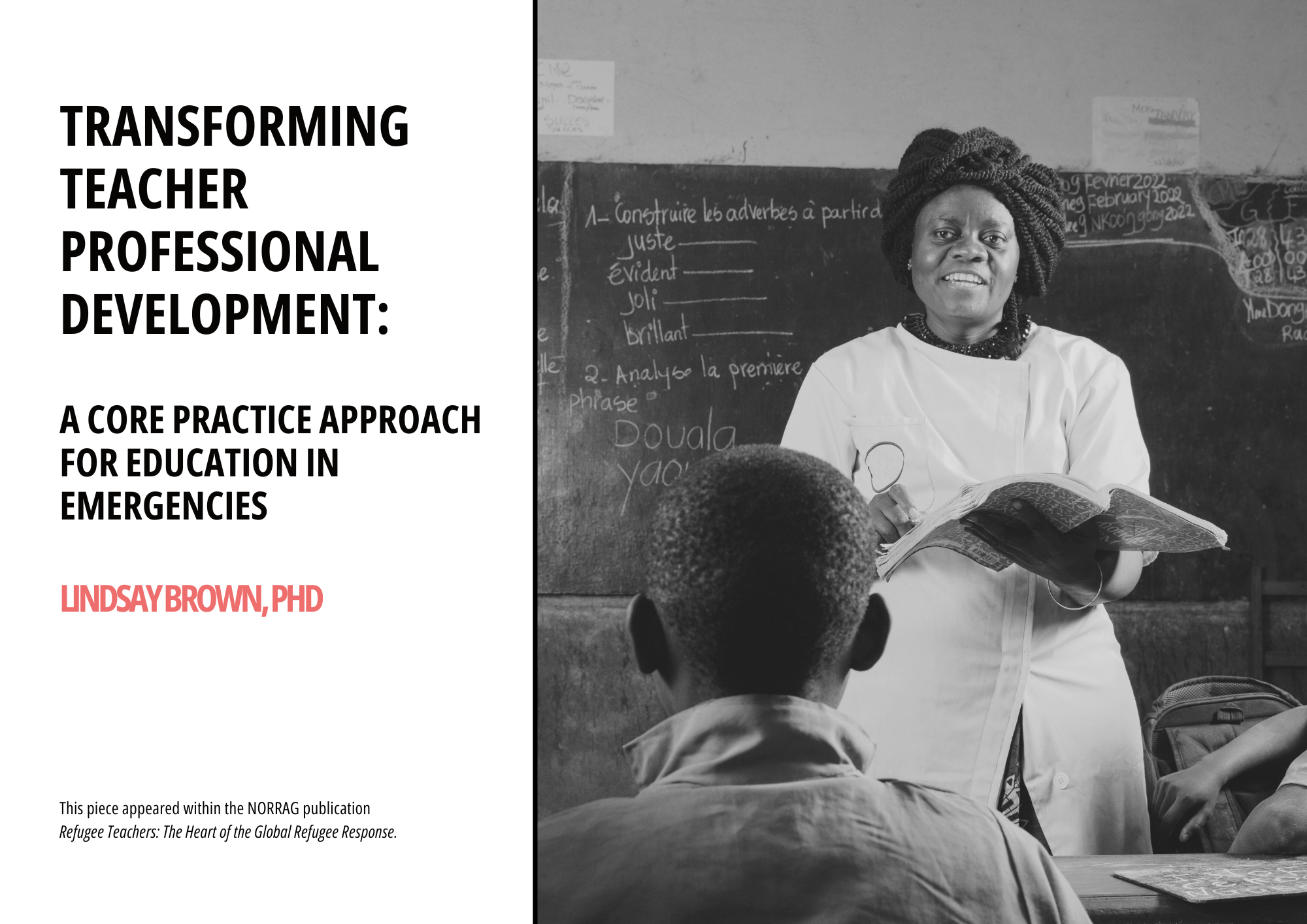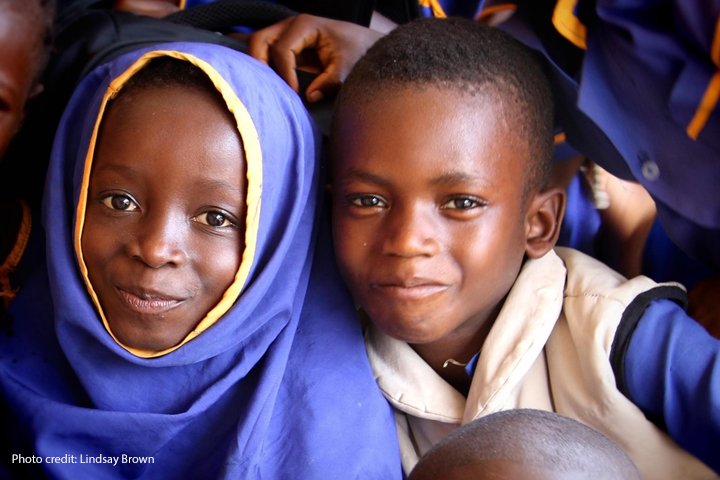Resources
Global TIES & University of Cape Coast co-host LEARN Methods Workshop in Accra, Ghana
In July 2025, LEARN scholars from Ghana came together in Accra for their first annual methods workshop—five days of hands-on training focused on measure development and psychometric analysis. By investing in these skills, LEARN scholars are building the capacity to advance research on learning variability.
Global TIES & UniAndes co-host LEARN Methods Workshop in Bogota, Colombia
in June 2025, TIES co-hosted the LEARN Summer Methods Workshop with our partners, Universidad de Los Andes, bringing together early-career scholars and professors from across Colombia for five days of immersive training in psychometrics and measurement development.
LEARN scholars came together in Germany to advance research on learning variability: how children grow and learn across time, groups, & contexts
A meaningful gathering in Germany, where LEARN and LEVANTE scholars came together to exchange ideas, build connections, and advance research on learning variability—how children grow and learn across time, groups, and contexts.
With support from the Jacobs Foundation, LEARN program—led by NYU, Universidad de los Andes, and the University of Cape Coast—empowers early-career scholars to shape research that reflects their local realities and drives more equitable, context-informed approaches to supporting children’s learning.
Moments like these remind us that global progress begins with meaningful relationships!
Competing or complementary goals for primary education: social-emotional learning across the Nigerien education system
This paper explores how SEL is perceived and implemented in the primary schools of conflict-affected Diffa, offering a unique lens into the diverse interpretations of SEL by various stakeholders.
Through a meticulous analysis of 58 semi-structured interviews encompassing a broad spectrum of perspectives—from Ministry officials and NGOs to school directors and parents—this study uncovers five distinct conceptualizations of SEL. Each reflects the priorities and concerns rooted in the stakeholders' experiences with conflict, trauma, psychosocial challenges, poverty, and religious beliefs. These findings highlight the varied expectations and objectives for SEL among different groups and show the complexity of integrating such programs in environments where education itself is under siege by myriad challenges.
Authors: Sarah Kabay, Hirokazu Yoshikawa, and Lindsay Brown.
KEYWORDS: Primary Education, Sub-Saharan Africa, Emotional Learning, Social Development, Conflict Resolution
Gobee learning agenda: Our top six learnings from developing an edtech tool for emergency settings
Gobee, a prototype assessment tool for emergency settings, set out to make it easier for teachers and facilitators to measure children’s learning progress. Following the initial stages of development, War Child and NYU Global TIES share their learnings and publish the codes on an open-source platform.
Evaluating Program Enhancement Strategies for Remedial Tutoring: A Cluster-Randomized Control Trial With Syrian Refugee Students in Lebanon
Despite widespread enthusiasm for remedial education programming with refugee populations, there is little rigorous evidence on how to design and implement such programs. We employ a cluster-randomized design of non-equivalent treatment groups to test the impact of access to two types of program enhancement: longer program duration and the addition of skilltargeted social and emotional learning (SEL) activities for Syrian refugees enrolled in Lebanese public schools. We find that, compared to 10 weeks of programming, 26 weeks marginally increases students’ literacy skills (ES = 0.04) and significantly improves behavioral regulation (ES = 0.31), but students reported less positive perceptions of their public school environment (ES= −0.83 to −0.89) and remedial tutoring site (ES= −0.15 to −0.24). We also find that the addition of skill-targeted SEL activities to 26 weeks of programming results in higher student reports of school-related stress compared to programming without skill-targeted activities (ES = 0.21). Implications for program and policy are discussed.
NORRAG Spotlights Dr. Lindsay Brown's Vision for Teacher Professional Development in Education in Emergencies
This brief discusses the Core Practice approach for transforming teacher professional development, particularly in fragile contexts. It outlines how Core Practices, a set of evidence-based, high-impact teaching techniques, can enhance student learning outcomes by offering an approach that is practical, coherent, and adaptable. A Core Practice approach offers a structured and concrete practice-based learning cycle that has been shown to increase teacher uptake of practice in diverse and challenging environments. The framework also fosters a common vision and language of high-quality teaching practice, increasing collaboration and consistent messaging among educational stakeholders.
Transforming Teacher Professional Development: A Core Practice Approach for Education in Emergencies
In this insightful brief, we delve into the transformative power of the Core Practice approach—a beacon of hope for educators working in challenging environments. The Core Practice framework introduces evidence-based, high-impact teaching techniques that promise not only to enhance student learning outcomes but also to provide a practical, coherent, and adaptable solution for teacher professional development.
EdTech in Low-Resource Settings: Challenges, opportunities, and conditions for success
This report summarizes the results of a survey the Gobee team launched to better understand the experience of stakeholders in the Education in Emergencies (EiE) sector when it comes to EdTech in low-resource settings, with a special focus on digital assessments and what it takes to develop and maintain open-source models (OSS) and data protection regulations.
An Interview with Dr. Lindsay Brown about BETTER: Building Expert Teachers Through Evidence-based Research
In 2019, Dr. Lindsay Brown at NYU Global TIES for Children co-developed and implemented the Building Expert Teachers Through Evidence-based Research (BETTER) program with Laura Killips.
From Evidence to Action for Education in Emergencies: TIES Collection of 3EA E-Cubed Research and Engagement
The purpose of this product is to summarize and showcase the achievements on communication of the evidence and lessons learned from the 3EA E-Cubed project. In sum, we generated 59 total communications products across 12 different formats targeting diverse audiences. These products are presented in 12 different formats, to cater to these diverse audiences and maximize the reach and impact, ranging from academic journals, policy briefs, and datasets to press releases, blogs, webinars, interactive online tools, and more.
How to Support School-Aged Children Living in Crisis Contexts? Evidence-based Recommendations for Stakeholders
Science is the most useful when it catalyzes change. In this tool, we provide actionable recommendations and guidance on how to best support education in emergencies, to get the evidence into the capable hands of the education stakeholders.
Measuring the Dosage of Brief Social-emotional Learning (Sel) Activities in Humanitarian Settings
Key messages for researchers and practitioners:Key messages for researchers and practitioners:
When studying brief and skill-targeted social-emotional learning activities, consider calculating measures of dosage: how much (quantity), how often (repetition pattern), and for how long (duration) the activities are implemented. Examine these measures as potential predictors of program outcomes or moderators of the program impact; and use the information to determine the “optimal dosage” when scaling up.
Link these measures with teachers’ and enumerators’ reports on implementation to provide better guidance on overall implementation quality. Examine these measures as potential predictors of program outcomes or moderators of the program impact; and use the information to determine the “optimal dosage” when scaling up.
Link these measures with teachers’ and enumerators’ reports on implementation to provide better guidance on overall implementation quality."
Measuring the dosage of brief and skill-targeted social-emotional learning (SEL) activities in humanitarian settings
In humanitarian settings, social-emotional learning (SEL) programs for children are often delivered using a field-feasible approach where the programs are more easily deployable and adaptable in the field, require minimal training, and depend less on the strict sequence and structure of the program components to elicit the intended treatment effect. However, evidence is lacking on what aspects of this implementation approach enable the SEL programming to be more beneficial to children’s SEL development.
Remedial Education to Support Learning Loss Threatened by Cuts to Development Aid
This blog is written by Dr Lindsay Brown, Senior Research Scientist at NYU-Global TIES in Steinhardt School of Culture, Education, and Human Development. Lindsay primarily investigates how to support teachers in areas of conflict and crisis with a focus on flexible and scalable teacher professional development strategies. She works mainly in the Middle East and Africa.
Image credit:
Pawel Czerwinski
@pawel_czerwinski via Unsplash.
Testing the impact of a skill-targeted social and emotional learning curriculum and its variation by pre- and postmigration conflict experiences…
Refugee children face significant adversities that can threaten critical developmental processes and hamper learning outcomes. This study examines how post-migration risk factors at the community, household, and individual level experienced by primary school-aged Syrian refugee children in Lebanon (N = 448, Age M = 9.08, SD = 1.90) are associated with cognitive, emotional, and behavioral developmental processes as well as literacy and numeracy performance. We identified several risk factors, including attending a lower grade than their age-expected grade level, that uniquely predict Syrian refugee children's developmental processes and academic outcomes.
Remedial programming and skill-targeted SEL in low-income and crisis-affected contexts: Experimental evidence from Niger
Despite substantial cross-national interest in remedial programming as a way to support low-achieving students, evidence of its effectiveness is rare, particularly in low-income and/or crisis-affected contexts. In this article, we present experimental evidence of the impact of a remedial tutoring program on academic outcomes from a two-level randomized trial of two treatments in Niger: school randomization testing the impact of skill-targeted SEL activities and within-school student-level randomization testing the impact of access to remedial tutoring.
BETTER: Building Expert Teachers Through Evidence-based Research Program Brief
In 2019, Dr. Lindsay Brown at New York University’s Global TIES for Children (NYU-TIES) co-developed and implemented the Building Expert Teachers Through Evidence-based Research (BETTER) program with Laura Killips. BETTER is designed to support intentional and sustained teacher learning across contexts. It utilizes practice-based strategies to develop teachers’ foundational skills and knowledge and to sustain them with the support of teacher coaches and other resources within education systems. The program builds upon decades of scientific research that demonstrates that effective professional development: demands active and applied learning from its participants; provides sustained and repeated learning opportunities; showcases models of effective practice; provides expert support; and fits within a coherent framework of practice.
Building Coherence in Teacher Learning: Teacher practice framework development and implementation in Lebanon
Teachers are expected to do it all: to attend to students’ academic, social, and emotional, skills while finding time to plan, grade, and develop professionally. In the wake of COVID-19 school closures, they are expected to remediate for loss of learning, target instruction to multiple skill levels, and ensure a safe learning environment. But they are currently provided with only a “patchwork of opportunities” to build such skills, especially in low- and middle-income countries (LMICs) and humanitarian contexts, where teachers are especially crucial. This approach to professional development does not provide an opportunity to build expertise in the teaching practices that are required to fulfill such wide-ranging expectations.





















